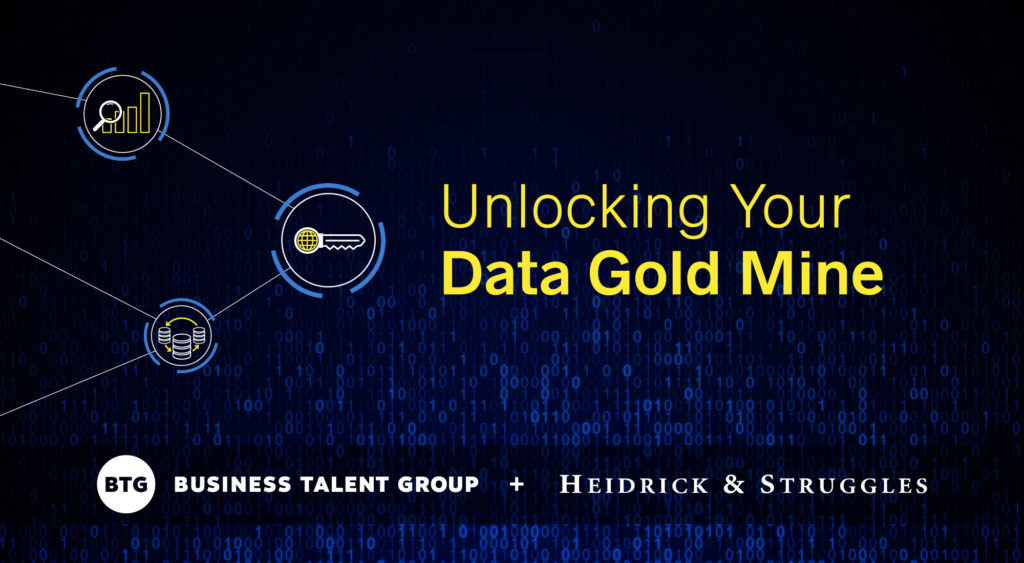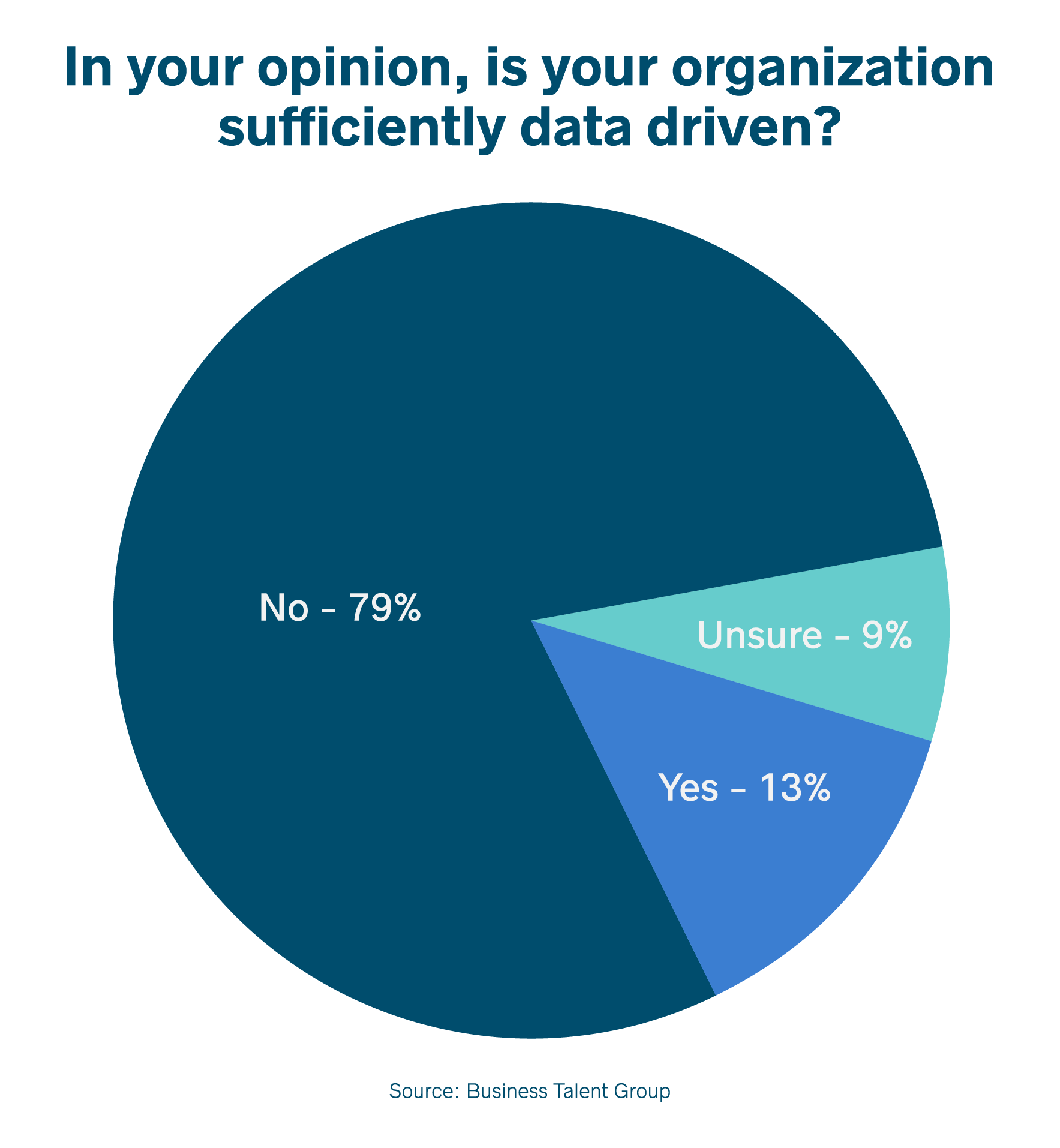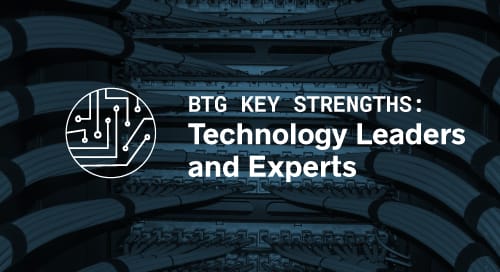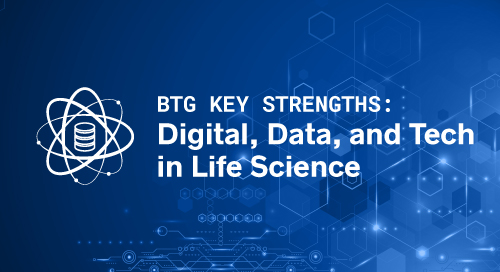
 New data science tools and technologies are incredibly promising—and incredibly difficult to put to use at most big companies. In fact, only 13% of the executives we surveyed said their organizations were sufficiently data driven. Companies struggle to find and retain data science talent and drive ROI on data science initiatives. Given those challenges, how promising is the data science outlook?
New data science tools and technologies are incredibly promising—and incredibly difficult to put to use at most big companies. In fact, only 13% of the executives we surveyed said their organizations were sufficiently data driven. Companies struggle to find and retain data science talent and drive ROI on data science initiatives. Given those challenges, how promising is the data science outlook?
We sat down with Heidrick & Struggles partner Ryan Bulkoski and independent data science experts Mohammad Ghassemi and Ted Bissell to discuss how companies can go from promising pilots to enterprise-wide change initiatives.
Here are our 5 top takeaways:
“You are going up that first hill and all you hear is ka-chunk, ka-chunk, ka-chunk.”
AI technology is currently flourishing—from fast processing speeds to AI poker bots that can beat human players. But according to Bulkoski, the current state of artificial intelligence is on par with the opening climb of a roller coaster.
That first hill is typically filled with anticipation and excitement, and riders are rewarded for their patience with a beautiful view from the top. But, as any theme park fanatic will tell you, the ride has only just begun, and there is a long, exhilarating journey ahead.
Similarly, Bulkoski said, the data science outlook in ten years is going to make 2019 feel like the dark ages, even though our current technology seems very sophisticated now.
“You can’t go from zero to AI overnight.”
As the Global Head of Artificial Intelligence and Data & Analytics Practice at Heidrick and Struggles, Bulkoski sometimes encounters senior executives who are unfamiliar with the area and are looking to hire someone with “AI superpowers” who can take their company from “nothing to AI.”
Unfortunately, this approach simply isn’t feasible. Instead, Bulkoski said, the key is to focus on data science talent acquisition and retention—and lay the groundwork for successful analytics initiatives.
“One of the things you need to start with is at least an initial hypothesis of what you’re trying to do with this capability.”
Before hiring any kind of AI talent, independent data scientist Ted Bissell said it was critical that an organization set clear goals and priorities and outline exactly what kind of investment it is willing to make to further their analytics initiatives.
Without this groundwork, any talent hired by the organization will have a harder time achieving success.
“If you bring in a very high-end data scientist who works well when all the systems are humming, and your systems aren’t humming yet, and you don’t really have buy-in across the organization to invest in them and get them to that point, then you may have a bit of a hiccup before you get moving,” he said.
“If people feel like they’re solving very interesting problems with AI, my pulse on the talent pool is that they really value that.”
AI expert Mohammad Ghassemi, an assistant professor at Michigan State University, recently advised a student who was debating between taking a $350,000 job at a major tech company or working on a start-up passion project and “eating ramen noodles for a few years.”
The student eventually chose to pursue his passion project and, according to Ghassemi, is representative of the overall talent pool, which often prefers interesting work and recognition over brand names and salaries.
Companies can use this to their favor when hiring independent consultants and full-time employees by connecting their data science outlook and initiatives back to the mission of the broader business.
“This will provide a competitive edge to organizations who are really looking to grow their data science teams, but who may not have the resources to throw $400,000 at an AI engineer or who don’t have the brand to be able to attract talent through some of the standard channels,” he said.
“Somebody who comes in with an independent lens has a couple of distinct advantages.”
When compared to full-time hires, independent data science experts have a couple of advantages, according to Ghassemi.
“They can provide insights into the problem by helping the clients simplify their train of thought and then go about identifying what the key directions are,” he said. “Then, once those directions are identified, helping them understand how to prioritize those opportunities with respect to what’s been seen in several other industries where the consultant has experience.”
Additionally, most companies often specialize in a subfield of AI, and an independent consultant can provide guidance in an area that is outside that core expertise.
“I think where independent folks can be most effectively engaged are those places where it may not be a core AI thrust for the organization, but something that would augment those core capabilities that the organization wants to build out for their own AI initiative,” Ghassemi said.
GET THE SKILLS YOU NEED
Thousands of independent consultants, subject matter experts, project managers, and interim executives are ready to help address your biggest business opportunities.
About the Author
Follow on Linkedin More Content by Alysha Khan
















